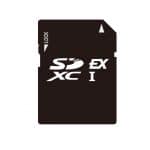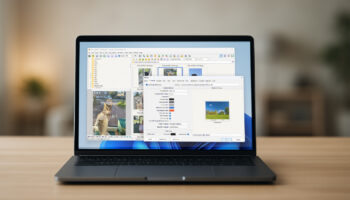Ancestry.com announces COVID-19 (coronavirus) testing

With the current pandemic continuing to grow in some areas, and unemployment rising even faster than food prices, we need problem solvers. Help at this time comes mostly from doctors and scientists, but can also come from other surprising areas.
If you've recently taken an AncestryDNA test, Ancestry.com is inviting you to supply some information that could assist in the fight against COVID-19.
Remote working doesn't help productivity

Although home workers have spent more hours in front of their computers than before the pandemic, the extra hours haven't translated into increased productivity according to a new study.
The report from digital experience management company Aternity looks at the extent to which remote employee productivity is affected by application performance. It also examines which applications work better in the home compared to the office.
Windows 10 is adding support for graphical apps to the Windows Subsystem for Linux

The Linux-supporting capabilities of Windows 10 are going to develop even further as Microsoft continues to improve Windows Subsystem for Linux (WSL). Later this month, with the release of Windows 10 May 2020 Update, Microsoft is launching WSL2 which sees the arrival of a full Linux kernel and more.
Talking at Build yesterday, Microsoft revealed the impending arrival of not only GPU hardware acceleration in WSL2, but also GUI app support.
Microsoft launches Linux-style Windows Package Manager Preview

Microsoft may be hosting its Build developer conference virtually this year, but this doesn't mean there's anything less than normal being unveiled. Among the announcement and launches is the first preview of the Windows Package Manager.
The open source tool has been created to make it easier to install software, automating and speeding up the process. If you've used a package manager in a Linux distro, the idea is very similar, and Microsoft acknowledge that it is something Windows devs have been asking for for some time.
Microsoft releases PowerToys v0.18.0 with new Run launcher and keyboard remapper

It's around a year since Microsoft decided to revive the popular PowerToys utilities for Windows 10, and in the intervening months there have been numerous updates and new tools to play with. With the newly release PowerToys v0.18.0 the company has added a handy keyboard remapping tool.
There's also something that will appeal to anyone who has been looking for a macOS-style Spotlight tool. The new Run launcher serves as a powerful upgrade to Windows + R and provides a flexible way to access apps, files and more.
Samsung T7 USB-C SSD is finally here

Back in January, we told you about the Samsung T7 USB-C SSD — a fast and svelte portable storage drive. There are two variants of the drive — a “T7 Touch” model which has a fingerprint reader for decryption, and a non-touch “T7” model that uses a password for the same thing.
While the touch model has been available for purchase for some time, Samsung promised the non-touch variant would hit stores in Q2 of 2020, meaning April, May, or June. Well, the T7 USB-C SSD is thankfully meeting that promised deadline, as it is available beginning today!
Microsoft releases Windows Terminal 1.0, download it now

At its Build developer conference last year, Microsoft took the wraps off its Linux-inspired Windows Terminal. This lets users access the Command Prompt, PowerShell, and WSL (Windows Subsystem for Linux) in the one place.
Since then, Microsoft has been adding additional features, such as multiple panes and tab re-ordering, across a number of preview versions. Most recently the software giant added mouse support and duplicate panes. Today, at the virtual Build 2020, the company announces that Terminal has hit the 1.0 milestone.
IoT: With great convenience comes even greater risk

IoT devices are skyrocketing in popularity -- almost everything can connect to the internet these days. You may have some of these in your home or business and not even realize it. Smart bulbs that sync with home management apps, IP camera systems, weather displays on smart refrigerators, smart thermostat -- basically all of the devices you would not expect to have an internet connection that do. This is highlighted further by the ongoing coronavirus pandemic now that the workforce is 100 percent remote and IT teams had to quickly enable remote work, all while ensuring security.
IoT devices make our lives a little easier and more convenient, but they come at a price as they provide new attack vectors for savvy cyber attackers. Gartner forecasts that there will be over 20.4 billion connected IoT devices in 2020, giving those attackers a lot of targets to choose from. On top of that, recent research indicated that IoT device hacks have increased by 300 percent, furthering the point that unprepared home network devices are easy targets for cybercriminals.
Majority of CEOs lose sleep over cybersecurity worries

Over 76 percent of CEOs are consistently losing sleep over the fear of becoming the next headline-grabbing security breach, yet less than half of them have a firm cybersecurity strategy in place.
A new study from cybersecurity company Forcepoint in partnership with WSJ Intelligence surveyed 200 senior executives from a range of industries to find the major cybersecurity stresses and areas of disconnect for business and security leaders.
Dark Web scams seek to cash in on COVID-19

With cybercriminals ever keen to exploit the latest trends to their advantage, it should come as no surprise that the latest research from Trustwave SpiderLabs shows a raft of Dark Web activity based around COVID-19.
Scams range from adverts for supposed vaccines to malicious infection maps. But there's also evidence that Dark Web activities are being hit by the pandemic in much the same way as legitimate businesses.
SD cards are about to get insanely fast

When it comes to data storage, drives can never be "fast enough" or have capacity that is "large enough." We need manufacturers to continually push boundaries, making sure that technology never stops evolving. For instance, SD cards have been in use for many years now, but they are far faster than when they first hit the scene.
And today, The SD Association announces that SD cards are about to get faster than ever, thanks to the SD 8.0 Specification. With SD Express technology, which is based on NVMe and PCIe, you will eventually be able to buy an SD card with speeds nearing 4GB/s!
easyJet hit by 'highly sophisticated' cyberattack: 9 million customers' details exposed

Budget airline easyJet has fallen victim to a cyberattack in which personal information of 9 million customers was exposed. Included in this personal data were details of travel plans, email addresses and, in some cases, credit card information.
The company is now in the process of contacting all of those who have been affected by the data breach, but says that anyone whose credit card details were stolen by hackers has already been contacted.
GlobalSign reveals new platform to ease PKI management

Public Key Infrastructure (PKI) is essential to handling the issuing of digital certificates and managing public-key encryption, but it can prove a burden for businesses.
To make the process easier, certificate authority GlobalSign is launching a new automated PKI platform called Atlas.
Open source security flaws found in 70 percent of applications

New research from application security specialist Veracode finds seven in 10 applications have a security flaw in an open source library on initial scan, highlighting how use of open source can introduce flaws, increase risk, and add to security debt.
The study analyzed the component open source libraries across the Veracode platform database of 85,000 applications, accounting for 351,000 unique external libraries. Nearly all modern applications, including those sold commercially, are built using some open source components.
Microsoft and Sony team up to create AI-powered smart camera solutions

Microsoft and Sony Semiconductor Solutions have announced details of a new partnership that will see the two companies working on AI-powered smart cameras and video analytics together.
The partnership means that Microsoft Azure AI capabilities will be embedded on Sony’s intelligent vision sensor IMX500. Additionally, Sony will create an enterprise-focused smart camera managed app that will be powered by Azure IoT and Cognitive Services.
Most Commented Stories
© 1998-2025 BetaNews, Inc. All Rights Reserved. Privacy Policy - Cookie Policy.




